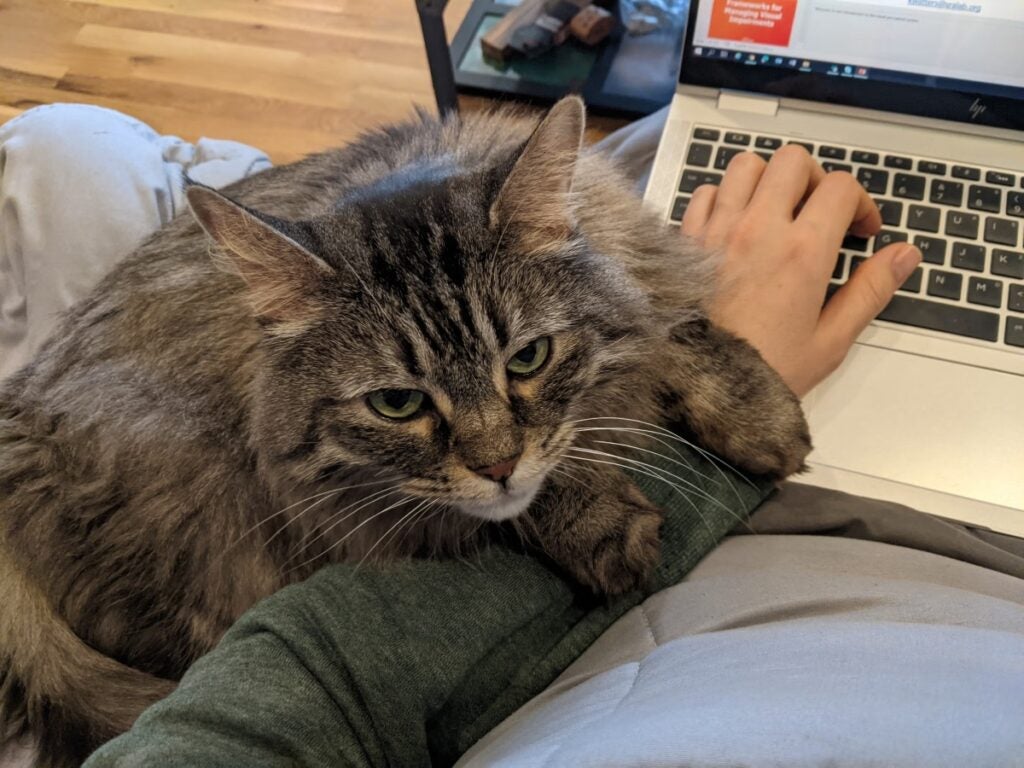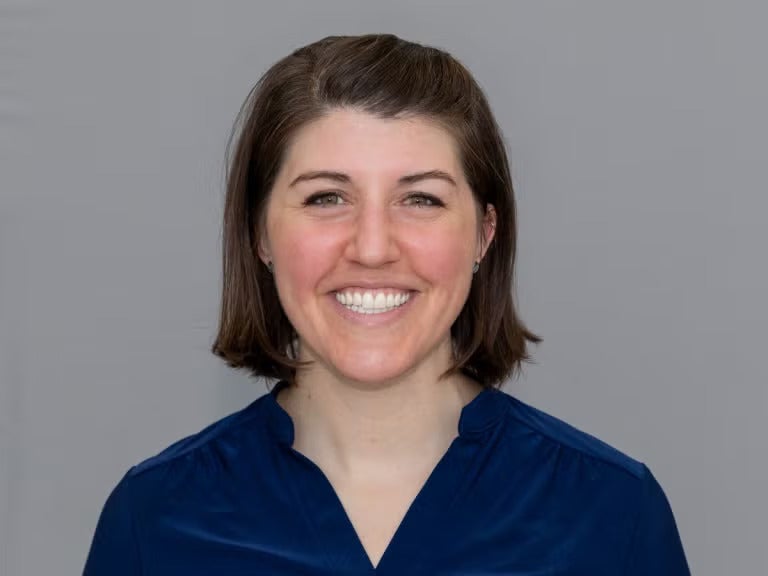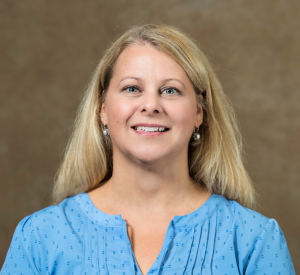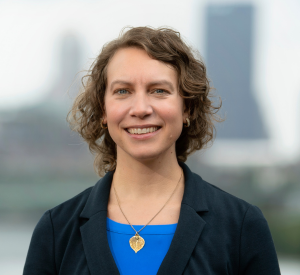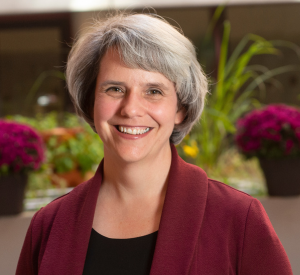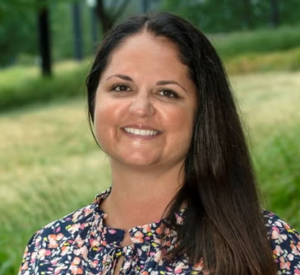Outcome update! After graduating from the Pitt CScD program in December 2022, Kelsey Watters’ capstone research was published in the May 2024 American Occupational Therapy Association (AOTA) OT Practice journal. The paper was co-authored with Department of Occupational Therapy Assistant Professor Ann Marsico, Chair and Associate Professor Juleen Rodakowski, and Jason Barbas of Shirley Ryan AbilityLab and Northwestern University. The team looked at how clients with cognitive dysfunction can more successfully perform meaningful occupations if they are supported with effective cueing strategies. Waters in now the clinical practice leader for occupational therapy at Shirley Ryan AbilityLab in Chicago, IL, specializing as a functional cognition and vision occupational therapist.
This past December, Kelsey Watters crossed the stage as one of the first graduates of the University of Pittsburgh’s online Doctor of Clinical Science in Occupational Therapy (CScD) program–a program that began strategizing her success years ago.
The CScD in Occupational Therapy (OT) is a post-professional clinical doctorate for occupational therapists. Pitt’s School of Health and Rehabilitation Sciences (SHRS) had established a successful full-time, in-person CScD in OT program in 2015. Then in 2019, they began planning a fully online, part-time program to meet the needs of occupational therapists around the country who wanted to remain at their job while returning to the classroom. This vision set Pitt OT in motion to welcome their first crop of online CScD in OT students in 2020. Unlike other programs that were struggling to adjust to the online format required during the pandemic, Pitt OT’s bold vision meant that the planning, relationships and infrastructure for online learning were already in place. All that was required of incoming students like Watters was to finish their workday and log on to their next lesson.
Discovering Pitt’s CScD in OT Program
Watters received a master’s in Occupational Therapy in 2011 and has worked at the Shirley Ryan AbilityLab (SRAlab) in Chicago, Illinois, for 10 years, working mostly with patients with various neurological conditions, including stroke and brain injury. In the last five years, she became more interested in education, and sharing what she was learning about new research with other OTs in her hospital so they could put these techniques into practice. Another graduate degree would help Watters accomplish her goals of putting new research into practice and growing professionally, but the program had to meet her criteria: world class faculty, a reputable program, professional mentorship, advanced training and a fully online program so she could keep working full-time in Chicago and not take on student loan debt. She also wanted the curriculum to directly apply to a new position she had started at SRAlab, focused on staff education and training.
Watters knew some of Pitt’s Occupational Therapy faculty as well as their breadth of expertise. She talked with Program Director Pamela Toto “who was designing the CScD program to give OTs the tools they needed to translate the research they know into their clinical practice.” Even further, Watters learned that the program was “less ‘learning little bits of knowledge’ and more focused on ‘application.’ That’s what really tipped me over the edge to choose this program. It wasn’t just learning facts to help my patients; it was learning skills that would make me a better leader down the road.”
Applying World Class Knowledge Today
Watters found that Toto and other faculty like Professor Beth Skidmore and Department Chair Juleen Rodakowski had designed the CScD program specifically for working professionals. “It means a lot to have access to really supportive faculty who understand that you’re working full or part time and are interested in going back to school to develop your professional skills.”
As she hoped, the curriculum and assignments were part of the reality of everyday application. Students presented case studies that were formed from problems they needed to solve at work. Watters says, “It was very helpful and insightful to have assignments dedicated to what we were doing. It was really powerful to learn a concept like how to engage stakeholders, then go and look at what I would want to change at work and who are the stakeholders.”
The faculty stretched what the occupational therapists already knew. Watters identified that Skidmore’s class “was really powerful and challenged how we would be change agents within our organization,” while Cara Lekovitch “complemented what was learned in Beth’s class. We looked at stakeholders, making sure they understood all the players who should be involved in the conversation and process.” Ultimately, the students proposed final capstone projects they wanted to implement as standard practice in their jobs.
While there were minor adjustments to be made at the start of the program, Watters actively saw the faculty making changes based on regular student feedback so they were always aware of whether the curriculum and their students were succeeding. “That meant a lot,” she said. “They were listening and responsive. That is something the Pitt program has demonstrated a high capacity for. Their north star hasn’t changed, but their path on how to get there has adjusted and changed as needed based on student feedback and I’ve really appreciated that.”
Becoming Better Leaders
Watters graduated in December 2022, but throughout the program she experienced improvement in on-the-job skills at her hospital in Chicago. As a student she said, “The program has reframed how I look at my job. I can collaborate with other departments in my hospital. It’s been a shift in my mindset so I can better do my job. I have a clear sense of what I want to do now, and with the CScD program, I can directly apply it.” She continues, “I can contribute more to projects and be sought out by others to provide guidance. I want to be able to direct how something is implemented in a better way. The program has identified gaps in my skillset and made me stronger.”
Now a graduate of the program, Watters raves about her online experience and encourages other occupational therapists to explore it as a top option in health care. “You don’t have to be in-person or in Pittsburgh. The flexibility of this program means access to world class professors and people who are the top of their field and who are really engaged in our professional development.”
